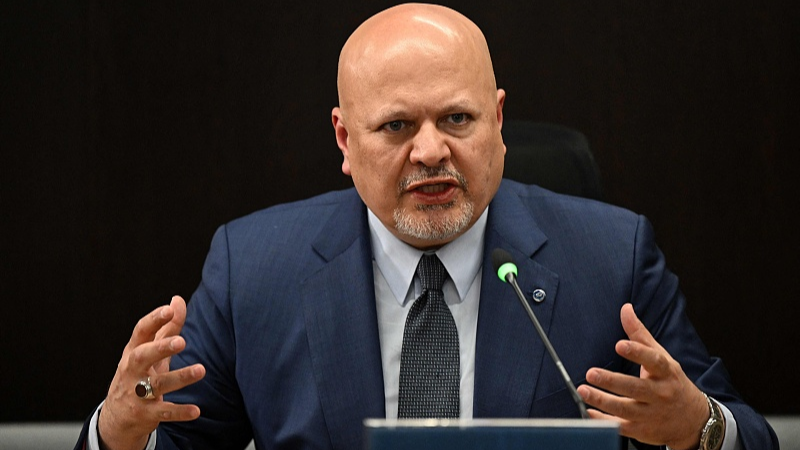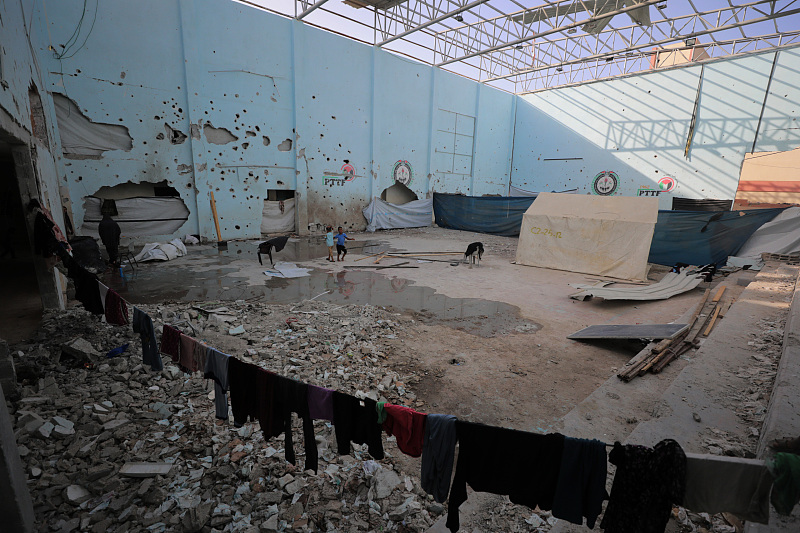Alfred de Zayas
 The prosecutor and the judges of the International Criminal Court (ICC) are bound to observe the Statute of Rome and apply it uniformly, without preferences or double standards. Otherwise, they will forfeit their authority and credibility. They must resist blackmail by any country that pretends to instrumentalize the Court for geopolitical games.
The prosecutor and the judges of the International Criminal Court (ICC) are bound to observe the Statute of Rome and apply it uniformly, without preferences or double standards. Otherwise, they will forfeit their authority and credibility. They must resist blackmail by any country that pretends to instrumentalize the Court for geopolitical games.
Capitulating to threats of illegal sanctions by the United States would subvert the international rule of law that our civilization has been building over centuries. Pushback is necessary not only by the Court itself but by the 124 states that are parties to the ICC Statute, by inter-governmental organizations and by civil society. Students in universities worldwide are already demonstrating and demanding accountability and an immediate ceasefire in Gaza.
The ICC’s Chief Prosecutor Karim Khan’s request to the Court to indict Israeli and Hamas leaders implements the object and purpose of the ICC. It is supported by the unanimous report of a panel of experts that advised the prosecutor. In the light of the ongoing genocide in Gaza and the egregious crimes that have been committed by both sides, it is necessary and logical to start judicial investigations.
Indeed, the ICC’s sister tribunal, the International Court of Justice (ICJ), also based in The Hague, is already seized of the international legal questions raised in the cases South Africa v. Israel and Nicaragua v. Germany.
The ICC has been operating since July 2002, but its 22-year history is marred by a troubled beginning and many states have begun to question its legitimacy, since hitherto it has only conducted trials against Africans and spared Western leaders from criticism. Indeed, many observers think that the ICC has become a tool of Western neo-colonial politics. This is evidenced by its failure to indict Western political and military leaders, notwithstanding well-documented legal briefs submitted to three prosecutors, particularly concerning war crimes and crimes against humanity in Afghanistan and Iraq, including torture in Abu Ghraib, Mosul, and Guantanamo.
The ICC lost much credibility when it surrendered to massive United States pressure and illegal sanctions imposed in 2020 by then-U.S. President Donald Trump on the then Prosecutor Fatou Bensouda and her staff, when she attempted to investigate reports of war crimes by U.S., Australian and German forces in Afghanistan. This perception of bias was confirmed when the new ICC Prosecutor Karim Khan announced in 2021 that his office would discontinue the investigations of U.S. crimes while continuing the investigation of crimes by the Taliban. This blatantly political decision was condemned by human rights groups worldwide.
 A heavily damaged stadium due to Israeli attacks in Deir al-Balah, Gaza, May 20, 2024. /CFP
A heavily damaged stadium due to Israeli attacks in Deir al-Balah, Gaza, May 20, 2024. /CFP
Although U.S. President Joe Biden lifted the sanctions imposed by Trump on the ICC in 2021, voices in the U.S. Senate have again been raised with regard to the necessity to “punish” the ICC for its audacity in seeking indictments against Israeli leaders. U.S. Senator Lindsey Graham proposed to work with Secretary of State Antony Blinken in adopting bipartisan sanctions on the ICC “not only for the outrage against Israel but to protect, in the future, our own interests.” Blinken answered: “I welcome working with you on that.” Soon after, human rights groups sent a letter to President Biden asking him to oppose any legislative effort to undermine the ICC: “The previous administration’s sanctions … aligned the United States with authoritarian tactics of threatening judges and independent judicial institutions.”
The new U.S. threats to impose sanctions on the ICC constitute a frontal attack on the very essence of international law and international order. They upend the independence of the international judiciary and the object and purpose of the ICC, which is to investigate all reports of violations of the Rome Statute, in particular the crime of aggression (Art. 5), genocide (Art. 6), crimes against humanity (Art. 7) and war crimes (Art. 8). Alas, this kind of U.S. “hardball diplomacy” is déjà vu, as the U.S. has a long record of pressuring the International Criminal Tribunal for the former Yugoslavia, the International Criminal Tribunal for Rwanda and even the ICJ itself.
Now the Court stands at a crossroads. It has an opportunity to vindicate the hopes of humanity for justice and accountability, or it can surrender to the animus dominandi of the United States and the European neo-colonial powers.
If the ICC judges fail to indict Israeli Prime Minister Netanyahu and his Minister of Defense Yoav Gallant, as recommended by Prosecutor Khan, it risks a massive departure of members of the Statute of Rome, because it will become all too evident that the ICC has abandoned its mandate and failed to even try to stop the genocide in Gaza by judicial means. The ICC would have failed not only the Palestinians but also humanity at large. The African Union has already discussed a few years ago the withdrawal en masse from the Statute because of a perceived lack of objectivity by prosecutors and judges. Failure to indict Netanyahu would be the last nail in the coffin.
As an international lawyer, I am optimistic that the ICC will issue the arrest warrants. Impunity is no longer acceptable in the 21st century. Nor can there be impunity for complicity in genocide, for aiding and abetting through military, political, diplomatic, economic and propagandistic support of the perpetrators.
Alfred de Zayas, a special commentator for CGTN, is a professor of international law at the Geneva School of Diplomacy and was a United Nations Independent Expert on Promotion of a Democratic and Equitable International Order 2012-18.
US Threatens ICC, Warning ‘If They [Prosecute] Israel, We’re Next!’